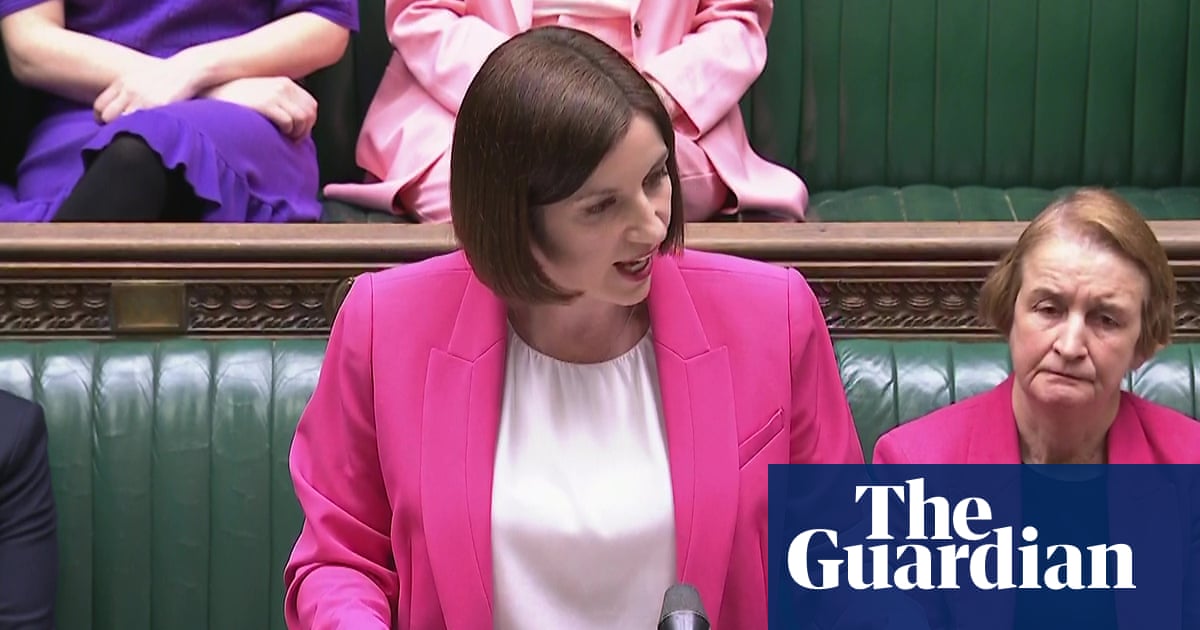Ministers have come under pressure to provide answers on how last week’ssupreme court rulingon gender identity will affect the daily lives of transgender people, amid confusion over issues such as toilet provision and hospital wards.
Keir Starmer saidhe welcomed what he called “real clarity” and “a welcome step forward” in his first response to the court decision, which ruled that “woman” in the Equality Act refers only to a biological woman.
But Bridget Phillipson, who holds the equalities brief alongside her job as education secretary, faced repeated questions about the repercussions of the decision as she gave a Commons statement saying the government would use it to protect single sex spaces.
The equalities minister was roundly criticised by Kemi Badenoch for what the Conservative leader said was aLabourchange of heart on the subject, with Badenochsaying ministers needed to “root out gender ideology from our institutions”.
Phillipson hit back, describing the leader of the opposition as a “keyboard warrior” who had failed to grasp the issue as equalities minister, saying the Tory leader should “get offline and get on board”.
Recounting her pre-parliament role helping to run a women’s refuge, Phillipson said the supreme court decision would help secure the safety of such spaces, while also arguing that the ruling was not about “the triumph of one group at the expense of another”.
“This is a government that will support the rights of women and trans people now and always,” she said. “This is a government that will support the rights of all people with protected characteristics now and always. This is a government that will support the rights of our most vulnerable now and always.”
She faced questions from a series of Labour MPs about what they said was a climate of fear generated by the ruling, particularly the practical impact of consequences such as transgender people potentially being obliged to use the toilets of their biological sex.
“Far from this ruling providing clarity, trans intersex and non-binary people are instead anxious and unsure about where this ruling leaves them, legally and practically, as they go about their lives,” warned Sarah Owen, the Labour MP who chairs the women and equalities committee.
Another Labour MP, Meg Hillier, raised the concerns of a constituent who transitioned to becoming a woman in the 1970s and had “used female toilets now for more of her life than she ever did any other toilets”, asking if she would now start to use male toilets.
Other Labour backbenchers, including Emily Thornberry and Catherine Fooks, said they had been contacted in alarm by LGBTQ and trans organisations, with Fooks saying they were “really concerned and frightened about the potential implications of this judgement”.
The Liberal Democrat equalities spokesperson, Christine Jardine, said that while she accepted Phillipson’s argument about women’s spaces, this “should not be at the cost of the human rights and security of another vulnerable group in society”.
Phillipson also faced calls from Tory MPs to set out how the ruling would affect provision on hospital wards for transgender patients. She said she recognised the concerns and promised to meet MPs and others. However, she gave no answers to practical concerns, beyond pledging that the updated code of practice from equalities watchdog the Equalities and Human Rights Commission would take these worries into account.
Earlier on Tuesday, Downing Street struggled to explain the seeming contradiction between Phillipson and other ministers suggesting trans people could use unisex or gender neutral toilets in public spaces when updated building regulations inherited from Badenoch’s tenure as equalities minister set out that new buildings should prioritise single sex facilities.
“I’m not aware of those specific building regulations,” Starmer’s spokesperson said, adding:“It’s not for the government to tell businesses how to to run their premises.”
With Starmer most likely being quizzed on the subject at prime minister’s questions on Wednesday, some Labour MPs say they are concerned over the current position.
“Toilet policing is not where we need to be in 2025,” one senior backbencher said. “No 10 needs to act. I don’t think we can leave this to a venue being taken to court because there’s no unisex toilet. I wish they hadn’t said it brings clarity, but had said: we need to think about what happens next.”
Also on Tuesday, theScottish government saidit would abandon plans to change legislation on gender recognition, saying it “fully accepts” the ruling of the supreme court.
The case was prompted by long-running legal action brought by the campaign group For Women Scotland against Scottish ministers.
